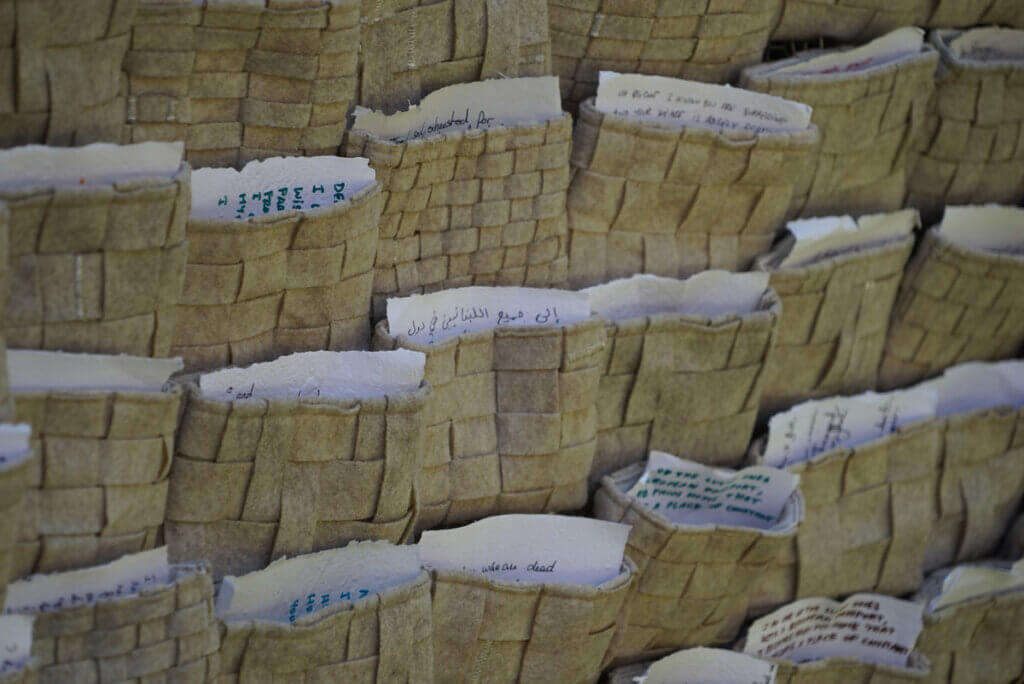As last year’s Beirut explosion has left the survivors feeling hopeless, desperately trying to find their way in a time of crisis, the Lebanese-Polish artistic duo T Sakhi – designers Tessa and Tara Sakhi – are giving the people of Lebanon a platform that can make their voices heard.
Created at the Venice Architecture Biennale, Letters from Beirut is a six-meter wall, made of 2,000 letters, which the two received through an online platform and then handwrote onto recycled paper themselves.
The letters, placed in small felt poutches, contain messages, thoughts and feelings of survivors of the blast, making the wall a memorial of resistance, grief and anger. As the government has done nothing to help them, only hoping that the people will soon just forgive and forget, the wall, usually a symbol of separation and restriction, has now become a way for them to communicate and unite – with each other, as well as with the rest of the world, which is the answer of the two sisters to the theme of the biennale How will we live together today? – through communication, collaboration.
The project was made possible by working in partnership with Irthi Contemporary Crafts Council, who manufactured the small pouches, handcrafted by 37 Emirati craftswomen, from the Bidwa Social Development Programme in Sharjah. The pouches are recycable, manufactured through a weaving technique inspired by one of the traditional Emirati pattern inspired by the ‘Sayr Yaay’ technique.
The papers used in the project are also handmade, crafted by university students, Mariam Abdulkarim, Amal Al Hammadi, and Zainab Adel, as their graduation project. The materials used were recycled papers, water, acrylic colors, blender and wooden moulds.
People from all over the world are invited to come see the installation, take letters from the wall, and even answer them, as some also include the email addresses of the authors. The goal of the sisters is to see the wall become empty, to see that their message has reached as many people as possible.
Apart from the letters, the patches also contain seeds, which the visitors are encouraged to plant, as a symbol of rebirth – a message of hope.
Apart from the letters, the patches also contain seeds, which the visitors are encouraged to plant, as a symbol of rebirth – a message of hope.
The installation is running until November 2021, and at the site visitors can also donate money to Lebanese non-governmental organizations supporting children’s education in Beirut and the reconstruction of the city, in terms of architecture and health.
Images courtesy of T SAKHI. Read more about their project, here.








